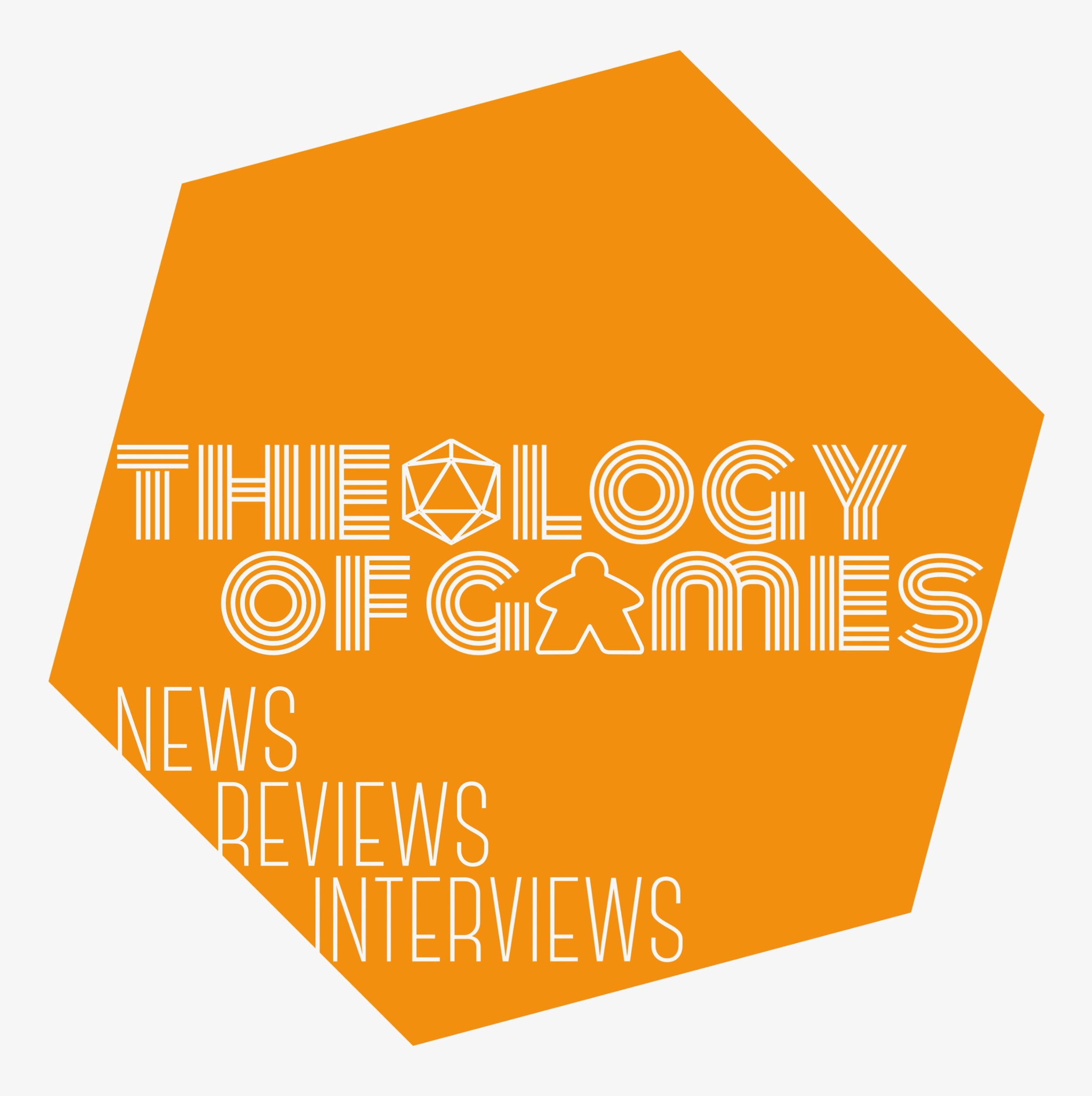A Double Take Interview with Paul Peterson and Todd Rowland
/ Game designer extraordinaire Paul Peterson is at it again with yet another expansion for the smash title Smash Up! Paul, being the friend of the blog he is, agreed to once again have a cyber chat with us about Smash Up, and he brought along Todd Rowland, Director of Marketing and Senior Brand Manager for Alderac Entertainment Group.
Game designer extraordinaire Paul Peterson is at it again with yet another expansion for the smash title Smash Up! Paul, being the friend of the blog he is, agreed to once again have a cyber chat with us about Smash Up, and he brought along Todd Rowland, Director of Marketing and Senior Brand Manager for Alderac Entertainment Group.
Paul, thanks again for visiting us here at TOG, we’re glad to bring you back for another chat!
And Todd, welcome to the party! Glad you could make it!
So it got leaked a little earlier than AEG had planned. But the cat has escaped the confines of the bag, and word on the street has it that the next Smash Up! expansion will be a Cthulhu theme.
When the this was revealed, some folks were a little critical of the idea that the expansion is so singular in its focus—that is, that it all revolves around the Cthulhu Mythos. What is the thought process behind that decision, and what would you say to the nay sayers?
Todd: Well, one thing we know that we want to do over time with Smash Up is include the occasional themed-release mixed in among “normal” mixed up releases. Smash Up relies on tropes (even our own twist on them) and Cthulhu is probably the biggest trope in hobby gaming. So we took on the mythos and put our own spin on it, cracked a few jokes, and weaved it into the Smash Up universe.
Paul: It’s also a mythos that has a lot of room to explore. It’s not all Cthulhu, there’s other elder gods, the ancient races, and the human factions with different goals.
You’re also adding a new card type to the game; what can you tell us about that?
Paul: Anyone who’s ever read Lovecraft or played a Cthulhu game knows how deeply the theme of madness runs, so I wanted to try to capture that, and a themed expansion seemed like a good place to explore some new mechanics for the game. So we added a new card type; Madness cards. No one starts with Madness cards in their deck, they only get added by other cards.
Madness cards are bad for the player. At the end of the game a player gets one less Victory Point for every two Madness cards in their deck, so some factions try to put them into other player’s decks as an attack. However, this isn’t always a bad thing. Madness cards can be played as an action to draw 2 cards, so you could end up helping the player if they embrace the cards. Also, as an action a player can get rid of the card altogether, so some factions will just do that to negate the penalty.
Just making them attacks in all four of these factions would have been a little boring, so I made several of the factions actually want them. Cthulhu has cards that are more powerful, but they have to take a Madness as a penalty, and Miskatonic takes them and then burns them to power their cards.
 It seems like Awesome Level 9000 just hit the market and now we have The Obligatory Cthulhu Set. How quickly will we see more expansions coming down the line for Smash Up?
It seems like Awesome Level 9000 just hit the market and now we have The Obligatory Cthulhu Set. How quickly will we see more expansions coming down the line for Smash Up?
Todd: Our intention at the moment is to have two expansions per year. We aren’t married to that and it may change, but that’s the working plan right now. Usually around early spring and September.
What are your favorite factions in Awesome Level 9000? (My [Firestone] 8-year-old’s favorite is definitely the Bears...)
Todd: I like Dinosaur-anything. Though Dinosaur-Elder Things is a massive power surge.
Paul: It’s hard to pick a favorite, but at the moment I think I’m having the most fun with Steampunk.
Paul, last time we checked in with you, you had a few things in the works—something that involved rolling dice... Any news on that front?
Paul: I have a bunch of projects going on right now, and the stack just keeps getting bigger. The Pathfinder Adventure Card Game that I helped develop should be out soon. I’m still working on the dice game you mentioned, but I keep making massive changes to it, so who knows what will happen with it. And of course, there’s more Smash Up on the way!
 Todd, we chatted with Jason Tagmire about the upcoming release of Maximum Throwdown. We’re super excited about that. Is there anything else exciting coming down the line from Alderac that you can share with us?
Todd, we chatted with Jason Tagmire about the upcoming release of Maximum Throwdown. We’re super excited about that. Is there anything else exciting coming down the line from Alderac that you can share with us?
Todd: Well we have Maximum Throwdown which is a blast. We also have Agent Hunter from Mike Elliot which is a fun, fast deduction game for two players. We have our Big In Japan line which includes Trains, Love Letter, and many more coming soon such as Cheaty Mages, Sail to India, Mai Star, and... yep Lost Legacy. People were expecting that I think. We also have some new games we’re discussing with other designers from Japan. And finally we have our own AEG stuff we’re working on for 2014 but it’s way too soon to spill on those yet.
Todd, you recently announced the Eastern Skies expansion for Nightfall. Can you tell us what that one brings to the table?
Todd: Eastern Skies is very cool! It introduces some new starting minions, but the main new effect is known as “Link”. Cards with Link have an effect the moment the are placed in the chain, rather than when it is resolving. There is also a new wound effect.
5-Questions 5-words to answer them -
Captain America or Thor?
Todd: Captain America all the way.
Paul: Thor!
Autobots or Dinobots?
Todd: Dinobots are a smash up.
Paul: Me, Grimlock, likes Dinobots!
Have you ever danced with the devil in the pale moonlight?
Todd: Cesar Romero was best Joker.
Paul: Only the blood moon.
Classic Star Trek, The New Generation or J. J. Abrams?
Todd: I really prefer Star Wars.
Paul: I like them all.
Favorite bacon-based meal?
Todd: Mushroom Chicken wrapped in bacon.
Paul: Bacon wrapped prawns.
Gentlemen, thanks so much for talking with us. We’re excited to see what you have in store for us in the future!
You can find Paul on twitter @Warewolf00 and Todd is on Twitter as well @ToddRowland
Thanks for joining us for this special interview here on TOG, we had a chance to catch up with Paul during the Origins Game Fair, and we'll be posting that video soon as well!
As always you can find us on Facebook, Twitter, Instagram and now YouTube!



 We're very excited to bring you an interview with the designer of The Great Heartland Hauling Co., Jason Kotarski. Jeremiah had a chance to sit down with him at Origins Game Fair in Columbus this past weekend and he gave us a look at 2 new games he's developing, and chatted about his church plant in Flint, MI.
We're very excited to bring you an interview with the designer of The Great Heartland Hauling Co., Jason Kotarski. Jeremiah had a chance to sit down with him at Origins Game Fair in Columbus this past weekend and he gave us a look at 2 new games he's developing, and chatted about his church plant in Flint, MI.





























